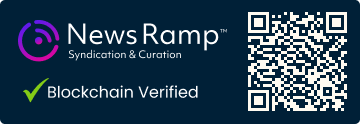Key Strategies for Managing 401(k) Accounts During Employment Changes

Summary
Full Article
Navigating the complexities of retirement account transitions is a critical task for workers changing jobs, with 401(k) rollover options playing a pivotal role in safeguarding financial investments. Jaime Raskulinecz, CEO of Next Generation Trust Company and a member of the Forbes Finance Council, highlights the importance of being informed about the various strategies available for managing 401(k) accounts during such transitions.
Many employees may not realize that leaving a job does not mean leaving their 401(k) savings behind. Options include cashing out, rolling funds into a new employer's retirement plan, or setting up a new Individual Retirement Account (IRA). However, the process is governed by strict rules, including a 60-day deadline for transferring funds to a new account to avoid penalties. Raskulinecz advises ensuring that rollover checks are made payable directly to the new plan administrator to prevent taxable events.
Recent updates to the IRS Notice 402(f) have clarified the options, rules, and tax treatments for eligible rollover distributions from employer-sponsored retirement plans. These updates aim to make the process more transparent for individuals navigating retirement account transitions. Additionally, emerging legislation could further simplify distribution guidelines, potentially introducing new options for those aged 50 and older, such as converting distributions into annuities.
Financial experts stress the importance of consulting with tax professionals or financial advisors before making any decisions regarding retirement account transitions. This ensures that choices are aligned with individual financial situations and goals. Moreover, the rise of self-directed retirement plans has democratized access to alternative assets within retirement portfolios, offering increased flexibility not just for wealthy investors but for a broader range of retirement savers.
The implications of these developments are significant for both individuals and the broader financial industry. For individuals, understanding and utilizing 401(k) rollover options can mean the difference between a secure retirement and unexpected financial shortfalls. For the industry, the trend towards more flexible and accessible retirement savings options reflects a shift in how retirement planning is approached, with a greater emphasis on individual choice and control.

This story is based on an article that was registered on the blockchain. The original source content used for this article is located at 24-7 Press Release
Article Control ID: 91078